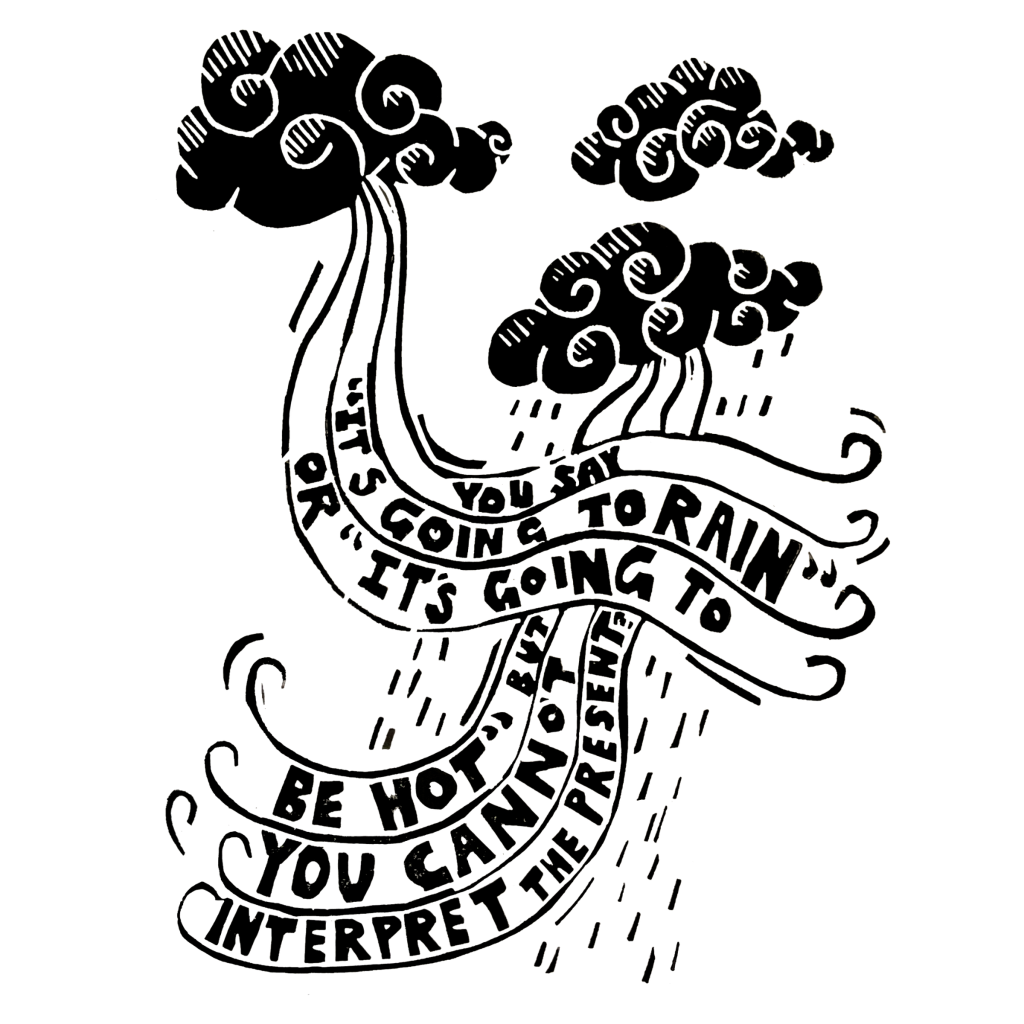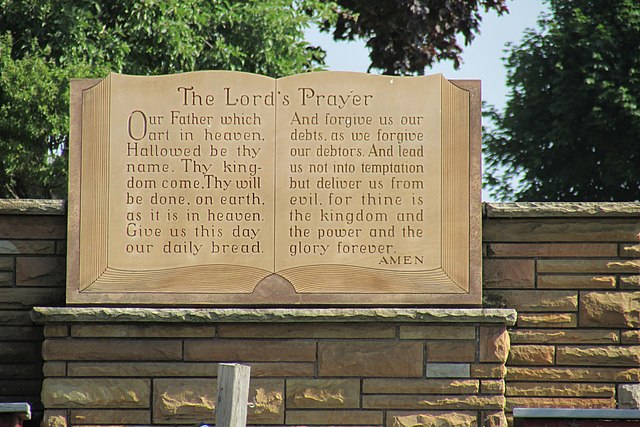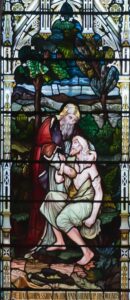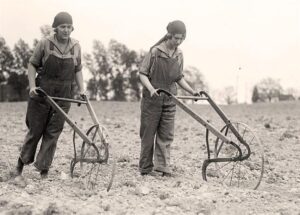To download a copy of the order of service, please click here:
22 08 28 The Eleventh Sunday after Trinity Eucharist
To watch this week's service on YouTube, please click here:
https://tiny.cc/walkleystmary-youtube
Image © The Rev’d Sarah West | visiolectio.com
The Readings
Hebrews 13.1-8, 15-16
Let mutual love continue. Do not neglect to show hospitality to strangers, for by doing that some have entertained angels without knowing it. Remember those who are in prison, as though you were in prison with them; those who are being tortured, as though you yourselves were being tortured. Let marriage be held in honour by all, and let the marriage bed be kept undefiled; for God will judge fornicators and adulterers. Keep your lives free from the love of money, and be content with what you have; for he has said, ‘I will never leave you or forsake you.’ So we can say with confidence,
‘The Lord is my helper;
I will not be afraid.
What can anyone do to me?’
Remember your leaders, those who spoke the word of God to you; consider the outcome of their way of life, and imitate their faith. Jesus Christ is the same yesterday and today and for ever. Through him, then, let us continually offer a sacrifice of praise to God, that is, the fruit of lips that confess his name. Do not neglect to do good and to share what you have, for such sacrifices are pleasing to God.
Luke 14.1, 7-14
On one occasion when Jesus was going to the house of a leader of the Pharisees to eat a meal on the sabbath, they were watching him closely.
When he noticed how the guests chose the places of honour, he told them a parable. ‘When you are invited by someone to a wedding banquet, do not sit down at the place of honour, in case someone more distinguished than you has been invited by your host; and the host who invited both of you may come and say to you, “Give this person your place”, and then in disgrace you would start to take the lowest place. But when you are invited, go and sit down at the lowest place, so that when your host comes, he may say to you, “Friend, move up higher”; then you will be honoured in the presence of all who sit at the table with you. For all who exalt themselves will be humbled, and those who humble themselves will be exalted.’
He said also to the one who had invited him, ‘When you give a luncheon or a dinner, do not invite your friends or your brothers or your relatives or rich neighbours, in case they may invite you in return, and you would be repaid. But when you give a banquet, invite the poor, the crippled, the lame, and the blind. And you will be blessed, because they cannot repay you, for you will be repaid at the resurrection of the righteous.’
New Revised Standard Version Bible: Anglicized Edition, copyright © 1989, 1995 National Council of the Churches of Christ in the United States of America. Used by permission. All rights reserved worldwide. http://nrsvbibles.org
The Sermon
By the Revd Dr Alan Billings
Surely, everyone in the country was utterly shocked last week when we heard about the shooting of nine year old Olivia Pratt-Korbel in Liverpool.
You’ll remember the circumstances.
On Monday evening, Olivia’s mother, Cheryl, heard a commotion in the street outside and went to the front door to see what was happening. Her daughter followed her into the hall. In the street, a man, called Joseph Nee, who was out of prison on licence, was being chased by a gunman.
Nee saw Cheryl opening her front door and made a dash for it, pushing his way inside the house. The gunman followed and fired fairly indiscriminately. One bullet struck Olivia’s mother in the wrist, passed through her and went into Olivia’s chest.
The man whom the gunman was trying to assassinate was wounded and, shortly after, two of his friends took him by car to hospital, ignoring Olivia and her mother. The little girl died later from her wounds at Alder Hey Children’s Hospital.
That was last Monday.
The following day the chief constable of Merseyside, Serena Kennedy, spoke at a press conference and her words captured very well, I think, the shock, disbelief, distress and sheer revulsion everyone was feeling.
She made a direct appeal to the community to tell the police what they knew and do the right thing. And she included in that members of the criminal community – gang members – and those close to them. Someone, knew something – so do the right thing.
If you think about it, this seems rather strange. The chief constable was making a moral appeal to people whose whole way of life revolves all the time around violence. The most likely explanation of what happened is that this is some sort of dispute between rival organised drug gangs. They have no inhibitions when it comes to the use of force, including lethal force, as they seek to defend their markets or settle some score or other.
So why did the chief constable think for one moment that her appeal to the criminal community, and those who mix with them, to do the right thing, would work?
I’ll come back to Liverpool in a moment, but you’ll have noticed that doing the right thing has been the theme of almost all our gospel readings over the last few weeks. We have followed Jesus round the towns and villages of Galilee as he has set out for a believing people what doing the right thing, the morally right thing, means for them in the circumstances of their lives. We have it illustrated again today.
There is first a piece about good manners and not making a fool of yourself – which is not particularly a moral issue. If you are invited to a smart dinner party, says Jesus, don’t take the best seat in case someone more important than you arrives and you get asked to move. Then Jesus says but if you give a dinner, think about those who are struggling, the poor and sick, and invite them. That would be a morally right thing to do.
Now we don’t go in for this kind of social, villagey entertaining in this country, so perhaps the moral equivalent now might be something like this: when you go to the supermarket for the weekly shop, spare a thought for those who are struggling in our society and buy an extra tin of beans for the S6 food bank. Do the right thing.
But when the chief constable told the criminal community of Liverpool to do the right thing, she was raising the moral stakes to an altogether different level. She said that the wanton murder of this little girl ‘crossed all boundaries’. In other words, even among people who would be untouched by normal moral standards, who lie and cheat and thieve, could still be affected by a moral appeal in certain circumstances.
However brutal and brutish their way of life, however self-regarding and selfish they might be, something could penetrate their hearts however hard, something could make them feel, think and even act differently - and that was the death of an innocent child.
In a way, what the chief constable was doing was pointing to what Christianity has always understood about how a heart of stone can be turned into a heart of flesh. The whole basis of our faith lies here: that in the end, what can penetrate our hard shell of selfishness, snap us out of our bad and evil ways, is when we see the endpoint of human sinfulness.
Jesus Christ crucified. The victim of human rage and spite. There we see it. A nine year old girl. Victim of someone’s wanton and reckless behaviour. There we see it. Heart-breaking, innocent suffering.
Is this ultimately then the only way we can be jerked out of our destructive ways of living and do the right thing?
The Prayers
Prepared by David
We come boldly to the throne of grace,
praying to the almighty God, Father, Son, and Holy Spirit
for mercy and grace.
Father of heaven, whose love profound
a ransom for our souls has found:
We pray for the world, created by your love,
for its nations and governments …
Extend to them your peace, pardoning love, mercy and grace.
Lord, hear us,
Lord graciously hear us.
Almighty Son, incarnate Word,
our Prophet, Priest, Redeemer, Lord:
We pray for the Church, created for your glory,
for its ministry to reflect those works of yours …
Extend to us your salvation, growth, mercy and grace.
Lord, hear us,
Lord graciously hear us.
Eternal Spirit, by whose breath
the soul is raised from sin and death:
We pray for families and individuals, created in your image,
for the lonely, the bereaved, the sick and the dying …
Breathe on them the breath of life
and bring them to your mercy and grace.
Lord, hear us,
Lord graciously hear us.
Thrice holy! Father, Spirit, Son,
Mysterious Godhead, Three in One:
We pray for ourselves,
for your Church, for all whom we remember before you …
Bring us all to bow before your throne in heaven,
to receive life and pardon, mercy and grace for all eternity,
Merciful Father,
Accept these prayers
for the sake of your Son,
our Saviour Jesus Christ.
Amen.
Common Worship: Services and Prayers for the Church of England, material from which is used here is copyright (c) The Archbishops' Council 2000.






